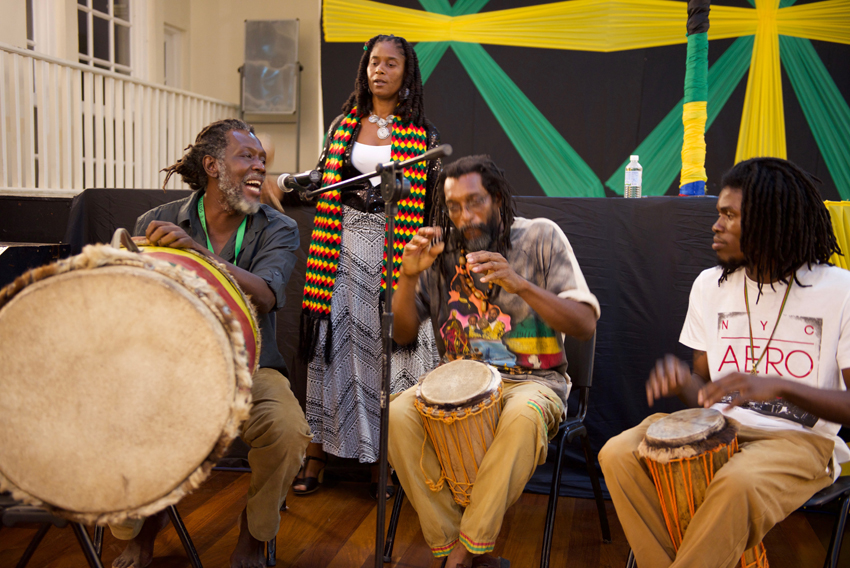Jamaican Music History
Nyabinghi Music: A Spiritual Journey
Nyabinghi music is deeply rooted in the spiritual traditions of the Rastafarian movement, and stands as a profound expression of faith and resistance. Originating in the early 20th century, Nyabinghi draws its name from the Nyabinghi warrior queen of East Africa, symbolizing a potent fusion of African rhythms, resistance, and religious devotion.
The heartbeat of Nyabinghi is the drumming ensemble, featuring three main drums: the bass drum, the funde, and the repeater. These drums played in a sacred trinity, produce the distinctive “heartbeat” rhythm that symbolizes the heartbeat of Jah, or God, in Rastafarian belief. The chanting and singing during Nyabinghi sessions carry spiritual messages, often quoting from sacred Rastafarian texts such as the Holy Piby and the Ethiopian Orthodox Bible.
The roots of Nyabinghi are intertwined with the emergence of the Rastafarian movement in Jamaica during the early 20th century. It served as a powerful medium for expressing the Rastafarian worldview, encapsulating themes of liberation, repatriation, and the divinity of Emperor Haile Selassie I of Ethiopia. Count Ossie, who later formed the band the Mystic Revelation of Rastafari, was one of the earliest exponents of Nyabinghi music. In 1959 he was instrumental in the recording of the song “Oh Carolina” which was re-recorded by Shaggy decades later and became a huge international hit. Count Ossie & the Mystic Revelation of Rastafari also recorded the seminal Nyabinghi song “So Long”
As Jamaican culture and music disseminated globally, so too did the echoes of Nyabinghi. Nyabinghi found resonance in regions far removed from its Jamaican birthplace. Its spiritual and rhythmic allure captivated audiences worldwide, leaving an indelible imprint on various musical genres. Bob Marley, a global reggae ambassador, incorporated Nyabinghi elements in tracks like “Rastaman Chant,” infusing the spiritual cadence of Nyabinghi into the mainstream music scene.
As we traverse the rhythmic landscapes of Nyabinghi, we unveil a musical journey deeply rooted in spirituality, resistance, and cultural identity. From its origins in Wareika Hill, Jamaica, to its global echoes, Nyabinghi stands as a testament to the transformative power of music. Through the beats of the sacred drums and the resonant voices chanting messages of hope and liberation, Nyabinghi has become a universal force, unifying diverse cultures under the banner of spiritual expression.


